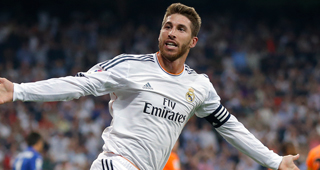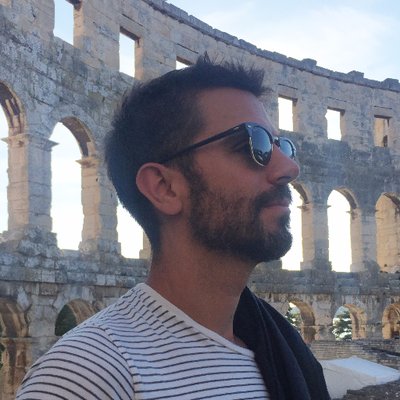Managers: Spain (Vicente del Bosque), Chile (Jorge Sampaoli), Netherlands (Louis van Gaal), Australia (Ange Postecoglou)
Schedule:
June 13th: Spain vs. Netherlands
June 13th: Chile vs. Australia
June 18th: Spain vs. Chile
June 18th: Australia vs. Netherlands
June 23rd: Australia vs. Spain
June 23rd: Netherlands vs. Chile
Group Summary:
Group B has three aesthetically appealing squads that appear capable of going the distance on paper and merely getting out will be an important accomplishment.
The opening match rematch between Spain and Holland has been circled on a lot of calendars since it was announced, but the critical one will be Spain and Chile to avoid facing Brazil in the Round of 16.
The success of each team will be defined by…
Spain: Getting to the Final for a chance at a better result against Brazil than last year’s Confederations Cup
Chile: Producing goals out of that exciting attack built around Vidal
Holland: Defending well enough to give the old goal scorers a chance
Australia: Picking up a point across three matches
Three in a row is dynasty, regardless of how you evaluate and judge dynasties. Winning the 2014 World Cup after taking the 2010 edition, along with the Euro in 2008 and 2012 would give Spain a hegemony of longevity over this era that we have heretofore never seen. There is typically a severe oscillation on the national team level, so for Spain to seamlessly be passed off on the fly from Xavi and Carles Puyol to David Silva and Koke would be remarkable and the abrupt hyperbole we typically issue “GOAT” tags would be fitting in this case.
The vital dread for Spain as they enter the World Cup one year after being run off the field by Brazil in Brazil in the Confederations Cup is being stuck between generations in a competition played in South America.
Spain has enough depth of midfielders to fill the starting XI for three or four countries, but the defense is a concrete issue. Sergio Ramos and Gerard Piqué are capable of world class play, but have been too inconsistent and sometimes a little slow. Both Ramos and Piqué will move forward on set pieces since they are two of Spain’s only weapons on aerial duels, which of course makes them vulnerable on the counter.
Yet tiki-taka’s most overlooked quality is as a defensive tactic. The number of chances an opposing team will have darkens once Spain gets a lead and can dominate the ball.
Throughout Spain’s run, it has played without a truly reliable striker as Fernando Torres has invariably been vanishing more than emerging and David Villa never recovered from his injury more than two years ago. The possibility of throwing Diego Costa in the box at the end of a 10-minute, 100-pass possession is a splendid modification of the script if the soccer gods offer enough horse placenta to allow it to happen on the soil of his birth in another country’s shirt.
Every player on the Spain roster is on a club in the Champions League and at least a dozen are destined to become all-time legends individually. I hear Beethoven’s triumphant “Ode to Joy” in my head whenever I watch Spain send down a through-ball after 30+ straight passes, so I’m an admitted believer.
Beyond the stylistic advantages and depth of talent, however, winning consecutively and on South American soil will be a difficult and improbable task. Tiki-taka relies on a high level of commitment in winning the ball back and I don't see this Spain squad having the stamina and willpower in this specific tournament unless Del Bosque fully uses the depth of his roster. Coming back strong with the younger core of this squad in 2018 is the safer wager.
Chile plays an entertaining and aggressive style of football that is also interestingly adaptable. Unlike Spain, the worldwide icon quotient of the roster doesn't quite compare to Spain, but there is considerable depth of talent in their starting XI surrounding Arturo Vidal and Alexis Sanchez. Mauricio Isla is teammates with Vidal at Juve, Eduardo Vargas plays for Valencia and Jorge Valdivia is at Palmeiras.
Chile likes to press deep and attack down the flanks whenever possible. While different from Spain on the attack, they are similar in prioritizing winning the ball back quickly.
Vidal is one of the best box to box midfielders and he plays such a key role in keeping Chile organized. His ability to win back possession in the center of the field allows the assault into the opponent’s third to seem never-ending. Center back is a position of weakness for Chile, which puts added responsibility on Vidal's task list.
Sanchez is inexplicably treated like a spare part by Barcelona and I would like to see him sold to play a more central role on a second tier Champions League club similar to Mesut Ozil’s move from Real Madrid to Arsenal. Sanchez can score in a variety of ways while imposing his will physically as a ball striker. He’s an incredibly difficult cover and the lack of speed in the back for Spain, Holland and Australia could put him in pole position for the Golden Boot after the first three matches.
Isla is vital to link with Sanchez down the right flank and are former teammates at Udinese. Eugenio Mena of Santos runs on the other wing.
Chile can get out of the group without much of a contribution from him, but Valdivia’s playmaking will be critical and makes the squad capable of special moments. Chile has one of the best through passes to crosses ratio in the world, which is the prudent move since there isn't much height on the roster.
A clear under the radar contender to win it all, especially if you are betting on the winning side to be South American, this is the side that Brazil hopes to avoid in the Round of 16.
The Netherlands brings many of the same faces that lost to Spain 1-0 in the 2010 World Cup Final, but they have yet to develop a new generation of players to be mixed into the squad and they also have suffered key injuries to Kevin Strootman and Rafael Van der Vaart.
Arjen Robben, Robin Van Persie and Wesley Sneijder are very visibly four years older and Louis van Gaal can’t reasonably expect players of that age to pretend they’re still in their mid-twenties over seven matches in Brazil given the amount of responsibility they carry.
Robben’s place as one of the most despised footballers in the world has been hard-earned over many years, his own teammates doesn’t even like him, but his talent is visible with every ostentatious cut inside with his Derek Fisher-like left hand from the right wing.
This Holland side isn’t capable of playing true Total Football due to the absence of viable attacking options from the back. They’re going to have to play uncharacteristically negative football to have a real chance at advancing, playing for ties against Spain and Chile while hoping to beat Australia.
Things could go horribly awry for Louis Van Gaal, as in France 2002 and 2010 awry, which would serve as an apt segue to becoming David Moyes’ successor at Manchester United.
The ‘A’ in Australia stands for ‘automatic’ as in ‘automatic’ out. No country in the World Cup has a more difficult draw than Australia and they are a credible candidate to leave Brazil without a single point. Group G is rightly called the Group of Death and Group B may as well be called the Group of Australia’s Death.
This is the fourth World Cup in Australia’s history, reaching the round of 32 in both 2006 and 2010, along with 1974.
Ange Postecoglou has the Socceroos playing a more attacking and entertaining style than his predecessor that is befitting the attitude of the country. But a negative approach with a strict reliance on the counterattack would suit his side best given the type of quality the other three countries in Group B have in possession.
Tim Cahill, Tom Rogic and Mile Jedinak are the three best players Australia is bringing to Brazil.
Cahill was a key part of that successful Australia side in Germany in 2006 and the last man of that generation left standing and is in an extended sendoff in the MLS.
Rogic is one of the best preternatural talents Australia has produced in a very long time, capable of being a true No. 10 and incredibly creative as a passer or dribbler. But he also couldn’t become a regular for Celtic and returned to Australia on loan this January to ensure he would be selected for the World Cup.
Jedinak is the captain and an underrated defensive midfielder coming off an impressive season for Crystal Palace.
Group B survivors will be fully battle-tested regardless of who advances, though Spain and Chile should be considered clear favorites. If José Mourinho was manager of Holland, I would give them a chance to sneak through by simply playing negative, mistake free football, but I'm all-in on Oranje getting it wrong in all the important ways.
The winner of the group gets the aforementioned privilege of avoiding Brazil until the final, which is a strong bet they do considering the quality of both Spain and Chile.



